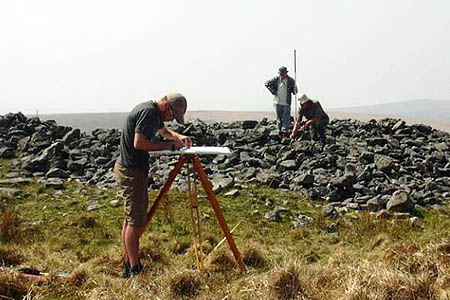A project to record and repair Bronze Age cairns on Dartmoor has won an award.
Volunteers from the Cairns Project worked at their own expense on the scheme, which involved 49 cairns, some of which are 4,000 years old.
The unpaid archaeologists worked with the Dartmoor Preservation Association, English Heritage, and Dartmoor National Park Authority to survey and restore the structures, the original purpose of which is unclear.
It is thought the cairns, which are scheduled ancient monuments, may have been used to mark burial sites or territories.
Over time, people have added stones to the cairns or removed them, creating hollows within the cairn itself. If the hollows continue to develop, it leads to the exposure of potential surviving buried archaeological features and their subsequent destruction.
The project won the Marsh Award, against strong competition from other projects across the UK.
James Paxman, chief executive of the Dartmoor Preservation Association, said: “It is very welcome recognition of the impressive results that can be achieved by different organisations working together.
“The volunteers have shown great levels of organisation and commitment to achieve these results over a five year period.”
“We were told we would need external funding to pull this off,’ said Anne Whitbourn, volunteer project coordinator for the DPA. “However, we took the view that we did not want the project to be driven by the constraints of funding applications. Our methods and tools are simple but effective and have mostly been provided from our own resources. The most expensive element was buying the train tickets to go to London for the presentation of the award!”
Andy Crabb, Dartmoor National Park Authority archaeologist and English Heritage historic environment field adviser, has provided professional guidance for the project. He added: “The quality of the work undertaken by the group is of the highest order and the surveys in particular are second-to-none.
“The success of the project has been entirely due to the close working partnerships that have evolved between the volunteers and the organisations involved.”
